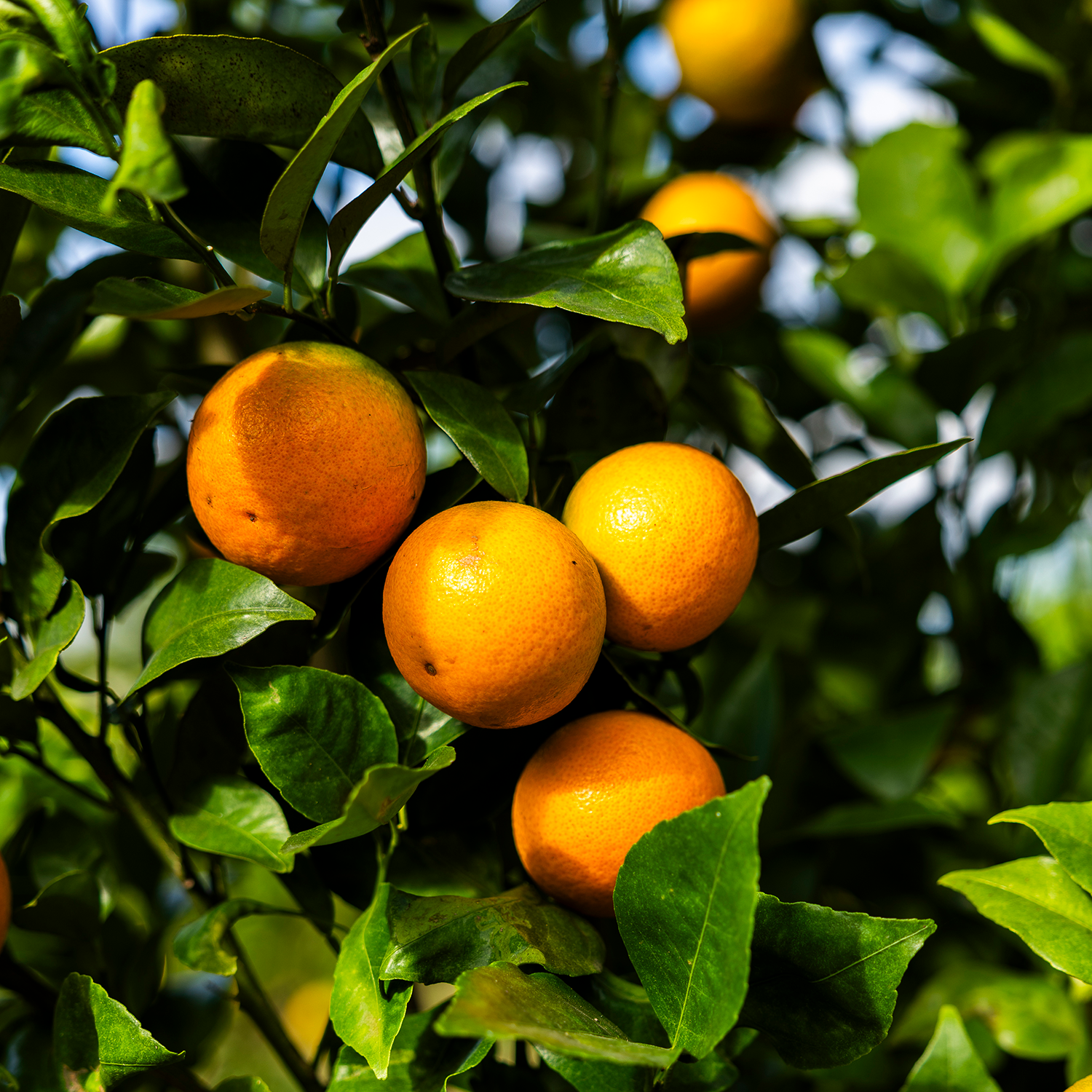Could Regenerative Organic Farming Transform “Food into Medicine"?
They tell us to stay on the outside aisle of the grocery stores, to avoid the boxed goods, the ultra-processed goodies nestled in the center aisles. You’re not new to the “Food As Medicine” concept and you do your best to make the healthiest choices you can for your family. Fruit always seems like a safe, easy choice, right?
What if we told you that the average piece of fruit you’re picking up amidst the array of varieties in your local grocery store could be much, much (8X!) more nutritional? What if you could give your family a good source of Vitamin C and much higher immune-boosting vitamins, anti-inflammatory properties, and cancer-fighting properties? No brainer, right?
Well, we are here to tell you that not all citrus is created equal. And Herb Young of Squeeze Citrus, a small citrus farmer in South Georgia is cracking the code to deliver the most nutrient-dense, delicious pieces of citrus you’ve ever tasted.
And it’s all about--- dirt. That’s right, the health benefits we crave from our food, especially in a world full of health problems, starts in the ground. The practice of restoring soil health is known as “regenerative farming,” and Squeeze Citrus is setting the standard.
Amazingly, I (Herb) worked as a chemical scientist for a large ag company for all of my 40 year career. It was only upon retirement, and finding a run-down farm in a small corner of South Georgia that I began to think about conventional farming practices (pesticides, fertilizer) and how it may be affecting our health.
“I’ve come to realize how our industrial chemical agriculture has produced food with little nutrition. Isn’t it obvious that the two are linked? When it comes to citrus, regenerative organic farming is unlocking a whole new level of nutrient density and healing potential. When the earth hums with life and each juicy piece of fruit carries the essence of regeneration and vitality, everyone benefits.” was my comment when asked about my 180-degree switch in practices over the past three years.
As a scientist, I know the drill. How could I prove that regenerative farming is worth it? I sent a piece of conventional fruit and a piece of my fruit out for laboratory analysis and the results were beyond my wildest dreams.
My fruit wasn’t just a little more nutritious, it couldn’t even be measured in percentages. It was multiples better and, in several cases, it was exponentially more nutritious.

The following flavonoids were missing in the Conventionally grown citrus:
- Tangeretin (cholesterol lowering) regen: 1.13 microgram/gram
- Nobiletin (anti-inflammatory). regen: 3.3 microgram/gram
- Neoherperidin (anti-inflammatory). regen: 8.89 microgram/gram
This information proves that life in the soil transforms the health of the tree and magnifies the nutrients in fruit that our bodies have been lacking. It seems unimaginable that how a plant is grown could have this profound effect on its nutrient levels. How could this be? Quite simply, modern agriculture has learned how to grow plants amazingly fast and unnaturally large. Synthetic fertilizers focus on making every cell in that crop plant bigger, but those cells don’t fill with the high concentrations of proteins, enzymes, and minerals that have provided us with nutrition for thousands of years. It’s almost as if the resulting crop is hollow.
On the complete other side of the spectrum, when supported by thousands of species of microbes in the soil, each plant grows vigorously because of its symbiotic relationship with the living ecosystem in the soil. A hundred years ago, our crops had this relationship and were packed with the nutrients that kept humans healthy. We didn’t know that our tillage and pesticides would wipe out the microbe support system and that our artificial fertilizers were just pushing big, "hollow" plants. Not surprisingly, our health began to deteriorate without the nutrients we needed. An unfortunate consequence of these oversized, unhealthy crops was that they became easy targets for insects and diseases. Insects, with simple digestive systems, couldn’t even digest the complex juices of regenerative plants. So, insects became plagues, and we mass-produced insecticides. Those unhealthy plants needed fungicides and bactericides to ward off disease and keep them alive. Our self-made problem snowballed. Pesticides killed the remaining beneficial microbes that tillage and fertilizer hadn’t already wiped out. Sadly, our proof is the produce on the grocery store shelf: tasteless and nearly nutrient-less.
What if this rediscovery of "Food As Medicine" could reverse the declining health of the American population? Maybe by recognizing the healing power of nutrient-dense foods, we can change the narrative between food and health.

So next time you reach for a piece of citrus, consider the journey it took to get to your table. Choose fruits grown with love and care for the soil. Your body will thank you, and you’ll be supporting a farming revolution that could transform our health, one juicy, nutrient-packed bite at a time.
Conclusion: “Why pay a doctor when you could just pay a farmer?”



